The simple facts of Franz Schubert's life shed little light on the enormous emotional range of his music, and the seismic effect his work has had. Living almost entirely in his home town of Vienna, he was a loyal but occasionally cantankerous and drunk friend to a tight-knit groups of artists, poets and writers. He wrote more than 600 songs, more than a dozen string quartets and 21 piano sonatas; he completed seven symphonies, with many more left unfinished; he wrote operas, masses, piano trios and duets. Yet there was only one public concert of his music in his lifetime. He died at 31, from typhus and syphilis.
It was decades before his achievement was recognised; the "Unfinished" Symphony premiered in 1865, 37 years after his death. Yet the more we know about his music, the more there is to explore. A new Radio 3 season starting this Friday, The Spirit of Schubert, will give us that chance. (Radio is a peculiarly Schubertian medium, the most intimate way of connecting a composer and listener.) There is a whole life revealed in his music, and if you really listen to him, Schubert will change yours, too. We asked musicians and enthusiasts which work they couldn't live without. Tom Service
Paul Lewis, pianist
Just one? If you put a gun to my head I'd probably go for the G major Piano Sonata. He wrote a great deal of dark music, particularly during the last two years of his life, and although there's always some hope and light, this is unusual: it's more optimistic, lighter than the other works written in that period. The first time I heard it was in 1989 at the Royal Festival Hall; I came down from Manchester to hear Sviatoslav Richter play. The first movement took 35 minutes, the tempo was so slow. Schubert always has a real intimacy and tenderness, but there is something very personal about this – even that first chord. If I could have only one note, I'd pick that first chord.
Marin Alsop, conductor
Easily my favourite piece is his last chamber work, the String Quintet in C major, featuring two cellos. With both my parents string players, and as a violinist myself, I grew up playing the piece with family and friends. What always struck me was the transcendental and spectacular moment when the melody breaks out in the cellos. Later, while I was a student, we would often put on marathon chamber music evenings that would last all night, with the ensembles growing in size. These were some of the most fun evenings of my life. For me the Quintet will always represent youth, friendship and the warmth of the shared experience.
Claire Tomalin, writer
I'd choose the last movement of the F major Octet, which Schubert wrote in 1824 in a single month. It's an extraordinary, sublime piece that lasts for about an hour, with six movements, for eight musicians. He had already been diagnosed with syphilis, so he knew he had a fatal disease.
The last time I heard it live was in our local church in Twickenham. We were able to sit very close, and it made me realise how important it is to hear chamber music live. It was written for a group of people interacting with one another: you need a sense of that.
Schubert mixes the light and the dark more subtly than any other composer. The Octet is written in a major key but the feeling is of a minor one; there is melancholy and apprehension. The fifth movement ends with serene notes from the clarinet; the sixth opens with an ominous buzzing from the strings – it's a strange bit of music with a real sense of danger. This is met with a formal dancing motif, reasserting the sense of the harmony of the world. Schubert makes you wish you could play the music, rather than just listen.
Simon Russell Beale, actor and broadcaster
Schubert can make time stand still. In the last, miraculous months of his life, he expanded his vision of what music could do. His most experimental work is the slow movement of his B flat Piano Sonata. It is as if he has distilled the process of music-making. He takes a harmonic progression, explores it, changes a single note, explores it again; he breaks down a simple melody until only the bones are left and the music is suspended. The result is a play of pure sound, without external reference, that gives us a glimpse of eternity.
Natalie Clein, cellist
There are at least five works I couldn't live without, but from a playing point of view I'd pick the Quintet in C major. I'm often asked to join string quartets to play the second cello part. You play at the very bass of the piece, and yet he lets the second cello really sing. He was the most harmonically sensitive composer, seeing a kaleidoscope of colours where most composers see one.
The second theme is in a major key, and yet it's utterly heartbreaking; Schubert manages to be at his most touching and ephemeral in major keys. The same theme comes back in the last movement after a wild Viennesse whirl of a dance, as if he's bringing back the ghost of the first movement: it's like a dream of a dream. I often think of him in terms of semi-consciousness or another spiritual level. I first got to know this work at 16, and remember being struck by something deeply spiritual, a kind of wisdom I hadn't come across before.
Simon Callow, actor, writer and broadcaster
The underlying characteristic of Schubert's chamber music – perhaps of all of his music – is the sense of it being made by friends for friends. This doesn't mean it's all amiable; it can and does encompass tragedy. But the B flat Piano Trio is the epitome of amiability, with occasional outbursts. The slow movement is a hymn to friendship, a celebration of non-erotic love. The scherzo bubbles like a brook, and the rondo finale is delicate and exultant by turns. The interplay is all.
Yuja Wang, pianist
It's intriguing how the pieces in major keys are often sadder than the minor ones, while the minor ones have more longing and hope. I've just recorded his Gretchen am Spinnrade as transcribed by Liszt, a work I couldn't live without ever since I heard the recording of Elisabeth Schwarzkopf singing Gretchen. You can hear the inevitable rhythm of the spinning wheel – cold, unchanging – with the voice of Gretchen's anxious lost soul on top. Its genius lies in the heartbeat, running constantly on the left hand, except when it turns major: the moment where she is daydreaming about Faust.
Yuja Wang's Fantasia is released on 2 April.
Stephen Hough, pianist
What fascinates me most is the way Schubert relinquishes the need to resolve questions of chaos or confusion. In the central section of the slow movement of his A major Piano Sonata the music comes off the rails – almost as if someone is pounding the keyboard in frustration. The outer sections sing the reason for such a disturbance in a melody of heart-searing sadness: it's prophetic yet timeless, wordless while saying everything.
Julia Fischer, violinist
I would have to go with the Fantasy in F minor for four hands. It's one of the last pieces Schubert wrote, and I would like to have it with me until I die. In it, he explores the frontier between life and death.
Russell Tovey, actor (playing Schubert in Radio 3's season)
The world would be less nice if the Ave Maria wasn't floating around. Many a lift journey would be less bearable, many a TV talent star would have one less secret weapon, and many a car commercial would be less dramatic. The Ave Maria has sunk deep into the public consciousness and I say, bravo.
Mark Padmore, tenor
He reaches the sublime through simplicity; when he is doing least he is at his most powerful. The song Nacht und Träume (Night and Dreams) is a perfect example. Twenty eight bars of unvarying, rocking semi-quavers; a heart-stopping modulation from B major to G major; and a vocal line that traces perfectly the contours of the poem. It's not so much a melody as a representation of text in another dimension.
Ian Bostridge, tenor
It has to be the Schubert Quintet in C major, one of the extraordinary works from the last 18 months of his life. It contains the most wonderful use of layering and harmonies. The unusual collection of instruments (three violins, viola and two cellos) means the second cello can liberate the other, so it's not always having to hold the bassline. After the depth of the first movement, there's a serene second movement, and then typical eruptions of ferocity. The last movement goes into a different place, a more relentlessly jolly one – but you get the sense that he has to make an effort to get there.
Leif Ove Andsnes, pianist
Gesang der Geister über den Wassern (Song of the Spirits over the Waters) is one of his most magical pieces. A setting of a Goethe poem, it is scored for four tenors, four basses and six strings (two violas, two cellos and bass). The sound is astonishing, the mix of dark timbres – and just when you think it cannot get any more beautiful or true, Schubert offers one of his heart-wrenching harmonies. It should be listened to only at night, and will make you feel as if you are the last person in the universe.
Leif Ove Andsnes performs at the Queen Elizabeth Hall on 29 March.
Thomas Zehetmair, conductor and violinist
Schubert never heard a note of any of his symphonies performed by a
professional orchestra, but wrote one of the richest and boldest symphonies of all time. The "Great" (no 9) mirrors all facets of life and art, from divine beauty to the most brutal and cruel outbursts, from folkloristic tunes to the most structured orchestra writing. It's one of the mysterious miracles of art.
Alfred Brendel, pianist
There is not one work but dozens, including, of course, the String Quintet in C major and all the mature chamber music, the later piano sonatas, the Grand Duo for four hands and a multitude of songs, comprising Winterreise and the Heine Lieder – not to forget the Unfinished and "Great" C Major Symphonies. My special affection goes towards the first movement of the Grand Duo, a unique achievement.
Semyon Bychkov, conductor
31 years is all he had to live. Five years less than Mozart. It is attributed to Schubert that the last thing he said 18 November 1828 before dying was: "Do I not deserve a place on the earth?" The Unfinished Symphony and the C major "Great" Symphony reflect so much the tragic incompleteness as well as everlasting achievement he left us with.
Bychkov conducts the LSO at the Barbican, London on 1 April.
Edward Higginbottom, Director, New College Choir, Oxford
There seems always to be something tragic about the unfinished bits of
Schubert's output - the "Unfinished" symphony is the best known
example, another is the so-called Quartettsatz in C minor. The sense of a fateful destiny over-hanging this single-movement piece is not just a matter of Schubert's themes. In fact, you could say that it is despite his themes, whose lyrical contours are undercut by a constant muttering of saltarello quavers set loose in the opening page that course through the whole movement in various guises. Schubert's lyrical themes may attempt to console, but underneath the anxiety remains. By inverting the norms of sonata form, and by reprising the opening bars at the very end, Schubert allows anxiety to get the upper hand: the movement never confirms its C major second subject, but gets drawn back into the anguish of its first. Here Schubert digs deep down into the human psyche.
New College Choir's Illumina is released on 2 April.
Kirill Karabits, conductor
For me the greatest mystery and fascination of Schubert lies in his chamber music, mainly in his compositions for solo piano and vocal cycles. I remember my first impression having heard Die Schöne Mullerin ("The Fair Miller-Maid") for the first time as a child - it sounded so simple and easy, at the same time every expression was so deep and clear, but somehow delicate. Schubert for me is a symbol of almost divine sensitivity that found the simplest ways to express it through music.
Robert Levin, pianist
It is impossible for me to limit Schubert works that I cannot live without. Even if I were willing to shed those that beguile (such as the 3rd, 5th or 6th symphonies, the Trout Quintet or the A major sonata), and focus on Schubert the visionary, who peers into the abyss and reveals to us life's most shattering truths, it would be impossible to choose among the G major string quartet, Winterreise, the E-flat piano trio, the C major Cello Quintet, the late A major piano sonata… all indispensable chronicles of the human condition to which certain works (the Adagio from Mozart's Adagio and Fugue comes to mind) are harbingers, but exist in lonely and supreme intensity.
Robert Levin performs with Steven Isserlis at the Queen Elizabeth Hall, London, on 27 and 29 April.
Steven Isserlis, cellist
How does one explain Schubert? The simple answer is – one can't. That
this seemingly insignificant little man could have produced within his
31 years innumerable transcendent masterpieces, overflowing with
uncanny beauty, terrifying anger and irresistible charm, is an
inexplicable phenomenon of humanity. From his mid-20s, when he learned that he was doomed to an early death, his music acquired an almost unbearable poignancy. But the tragedy is redeemed by the heavenly beauty of his works. Within a few notes, Schubert can open a door and show us paradise.
Steven Isserlis performs with Robert Levin at the Queen Elizabeth Hall, London, on 27 and 29 April.
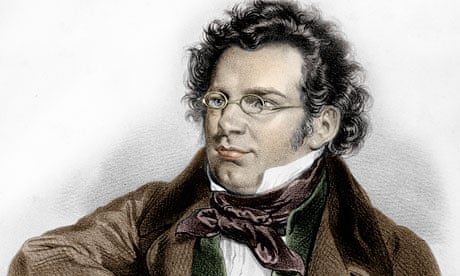
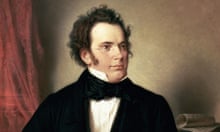
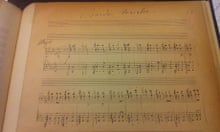
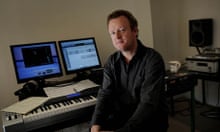
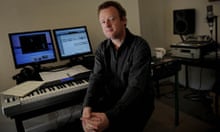
Comments (…)
Sign in or create your Guardian account to join the discussion